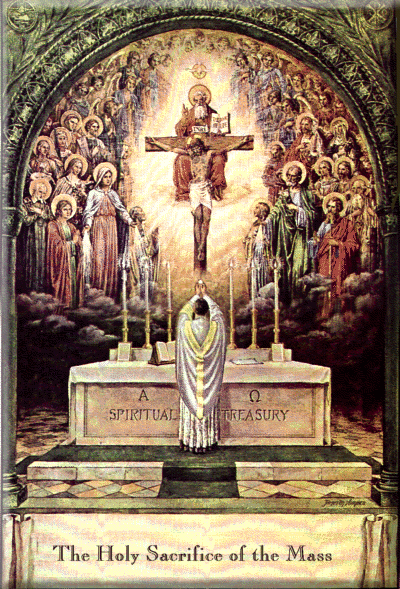Just yesterday I went to a group at my church that I go to on Thursdays, " The Brotherhood of Saint Dismas". It is a local group where we get together and grow in our faith, as well as do charity work.
As I was in the group, my friend and I were talking about Eucharistic miracles that have happened in our lives. My friend told me about how recently that he had lost some close members in his family, he has seen the Eucharist in a new light. He has felt the real presence of the body of Christ.
I told him that I too have experienced Eucharistic miracles, and not too long ago neither. I suffer from what is known as scrupulosity. It is something that makes daily life difficult to cope at times. It is easy for people with scrupulosity to have intrusive thoughts, see sin where there is no sin, and have a hard time remembering past sins.
I told my friend that about just a week ago I made the decision to do my best to go to daily Mass. The thing is that each day that I received Communion, the more I felt God's presence. It was out of a sudden easier for me to deal with all these obstacles that I have because of scrupulosity. Somehow I was not disturbed by all these things, be it the intrusive thoughts, or even the remembrance of past sins. I just felt at peace, and I felt God's mercy. I felt closer to God.
It was not until another of my friends in that same group spoke and said " you are what you eat". Once his said these words, I thought about it for a moment; not really getting what he was talking about, but finally it all made sense to me. Just as people say this phrase to describe someone's diet, this same phrase can be attached to the Eucharist.
The Catechism of The Catholic Church 460 states
460 The Word became
flesh to make us "partakers of the divine nature":78 "For this
is why the Word became man, and the Son of God became the Son of man: so that
man, by entering into communion with the Word and thus receiving divine sonship,
might become a son of God."79 "For the Son of God became man so that
we might become God."80 "The only-begotten Son of God, wanting to
make us sharers in his divinity, assumed our nature, so that he, made man, might
make men gods."81
This passage is describing a theological concept known in the west as Divinization, while in the Eastern churches, and the Orthodox Theosis. I have to say that this concept has been one that I recently learned about, and probably one I will struggle with my whole life. This passage does not mean that we become God himself, or even equal to God. It means that we share in the divine nature of God, meaning that since we are made in the image and likeness of God, we begin to share in the Beatific vision. This means seeing God face to face as he really is, The Trinity itself would be a great example.
The more that you take the Eucharist which is the body of Christ are you not taking him in? Are you not sharing in his divinity and having him with you? For this reason it is that the more we take the Eucharist, the more that we become in a way as Christ is.








0 comments:
Post a Comment